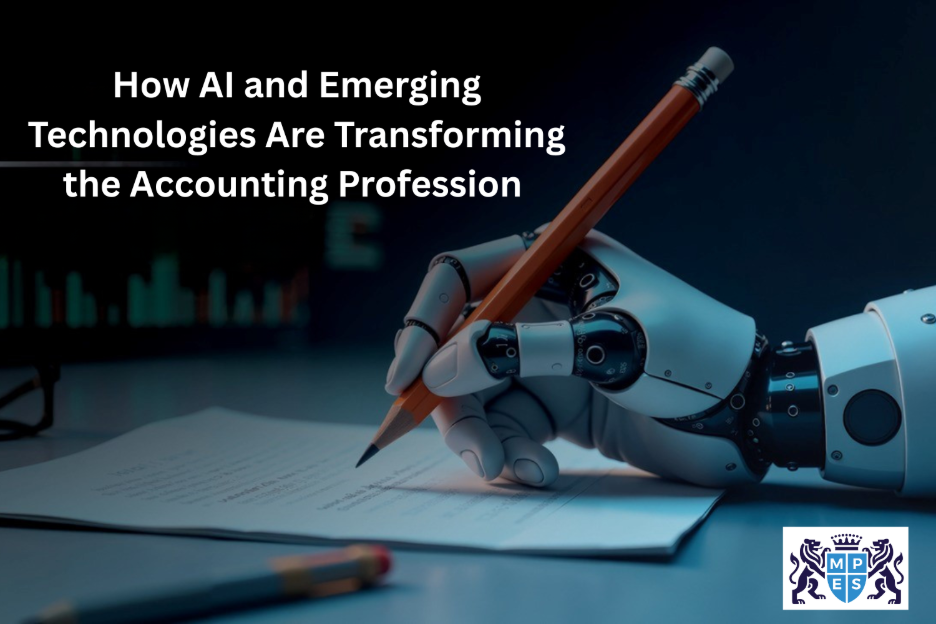Curious about where accounting is heading next? Start with the ACA Certificate Level and see how smart tools are changing daily work. Spreadsheets are not going away, but they now sit beside AI. Routine checks run in the background. You focus on insights and advice. Strong Accounting Principles still guide every entry and report. The difference is speed, accuracy, and reach. Cloud software, automation, and analytics reshape how teams plan and decide. Clients expect faster answers and clearer stories.
Ready to see how these trends shape study and work? Let us break it down.
How Digital Innovation is Changing Accounting
The following are the main ways that contemporary technology is influencing the accounting field and changing routine practice:
Rise of Intelligent Automation in Accounting
Time is no longer wasted on routine tasks. Artificial intelligence-powered tools log costs, match bank data, and scan receipts in a matter of seconds. Because of this change, accountants now spend more time analysing financial trends and less time typing. Every year, systems for accounts payable and receivable likewise get more intelligent. They detect odd entries and notify teams in advance of potential problems. Intelligent automation helps businesses achieve stringent standards while saving time by enhancing compliance and lowering errors. To put it plainly, automation is now required. It is essential to contemporary financial processes.
Cloud Accounting is the New Normal
The way accountants operate has been altered by cloud platforms. You may now work with teams in real time and access financial data from anywhere. Cloud software is a dependable option for both consumers and businesses due to its secure storage and data backups. Learners who wish to practice utilising genuine systems and small enterprises can also benefit from it. Cloud accounting offers clever features like forecasting reports and protects records. It has made it possible for accountants to help clients anywhere in the world by creating prospects for worldwide employment.
Data Analytics Strengthens Decision Making
Number keepers are no longer the only role of accountants. They’re turning into strategic consultants. Professionals can identify trends in spending and operational effectiveness with the aid of data analytics technologies. Accountants use these insights to help organisations make wise financial decisions. Predictive analytics can show possible savings, pinpoint danger areas, and project future revenue. The value that accountants provide to firms is increased by this change. One talent that distinguishes modern accountants in competitive employment markets is the ability to evaluate data and use numbers to convey financial tales.
Cybersecurity in Modern Accounting Systems
Financial information is delicate. Cybersecurity becomes crucial when more documents are stored digitally and systems are operated online. Accountants need to know how to safeguard data and stop unauthorized access. Information is protected by multi-factor authentication, encryption techniques, and safe cloud backups. AI-based security systems that identify anomalous activity and stop online threats are also used by many businesses. To safeguard company data, modern accountants must have a basic understanding of digital security. This makes cybersecurity a critical competency for the financial industry of the future.
Blockchain and Digital Ledgers in Accounting
A transparent method of recording transactions is provided by blockchain technology. It produces safe ledgers that prevent unauthorised changes to financial data. Clients, businesses, and accountants all have more trust as a result. Blockchain facilitates quicker audits and lowers the risk of fraud. Additionally, it improves the reliability and smoothness of cross-border transactions. Many businesses are investigating blockchain for asset monitoring, record keeping, and smart contract automation, even though it is still in its infancy. This pattern demonstrates how contemporary accountants are required to be knowledgeable about digital records and finance.
AI-Powered Fraud Detection and Compliance
The financial industry has always struggled with fraud. Artificial intelligence improves the accuracy and ease of identifying suspicious activity. Real-time AI systems analyse hundreds of transactions and notify teams of any odd trends. This lowers hazards and upholds strict compliance guidelines. These tools are not replaced by accountants. They oversee them and render judgments. Building a trustworthy accounting process now includes knowing how AI keeps an eye on financial records. It also aids in shielding customers and companies from financial crimes.
Digital Skills Are Now Essential in Accounting Careers
New expectations are brought about by new technology. Employers seek out accountants with software skills, data analysis abilities, and an understanding of digital finance systems. Accounting principles knowledge is still crucial, but technology abilities are becoming just as vital. Early exposure to digital tools benefits ACA Certificate Level learners. Automated reporting, financial analytics, and cloud accounting are some of the skills that help get ready for future positions. To effectively communicate data insights, modern accountants also need soft skills like problem-solving and communication.
Conclusion
Technology is reshaping accounting. Automation, analytics, cloud, and blockchain are moving routine work to machines and giving accountants more time for insight. Build core skills. Strengthen Accounting Principles. Add digital fluency in data, cloud, and AI. If you are preparing for the ACA Certificate Level, this is the right moment to practise with real tools and projects. For guided learning and practical support, explore courses with MPES Learning. Take the next step with confidence.

Sandeep Kumar is the Founder & CEO of Aitude, a leading AI tools, research, and tutorial platform dedicated to empowering learners, researchers, and innovators. Under his leadership, Aitude has become a go-to resource for those seeking the latest in artificial intelligence, machine learning, computer vision, and development strategies.


